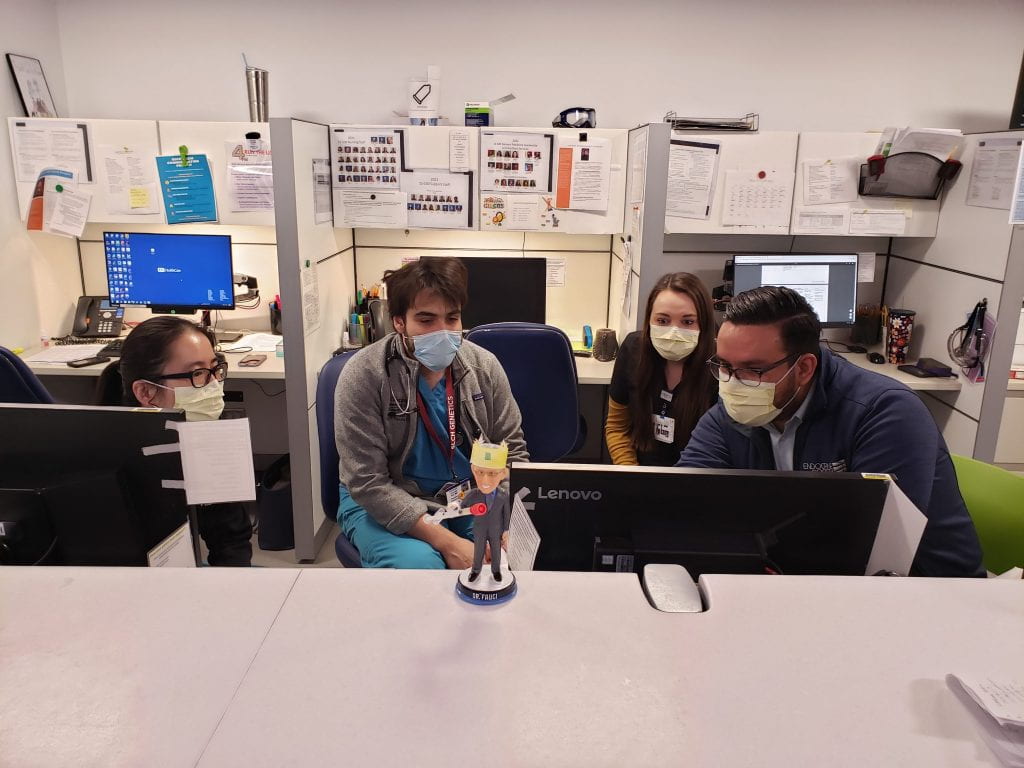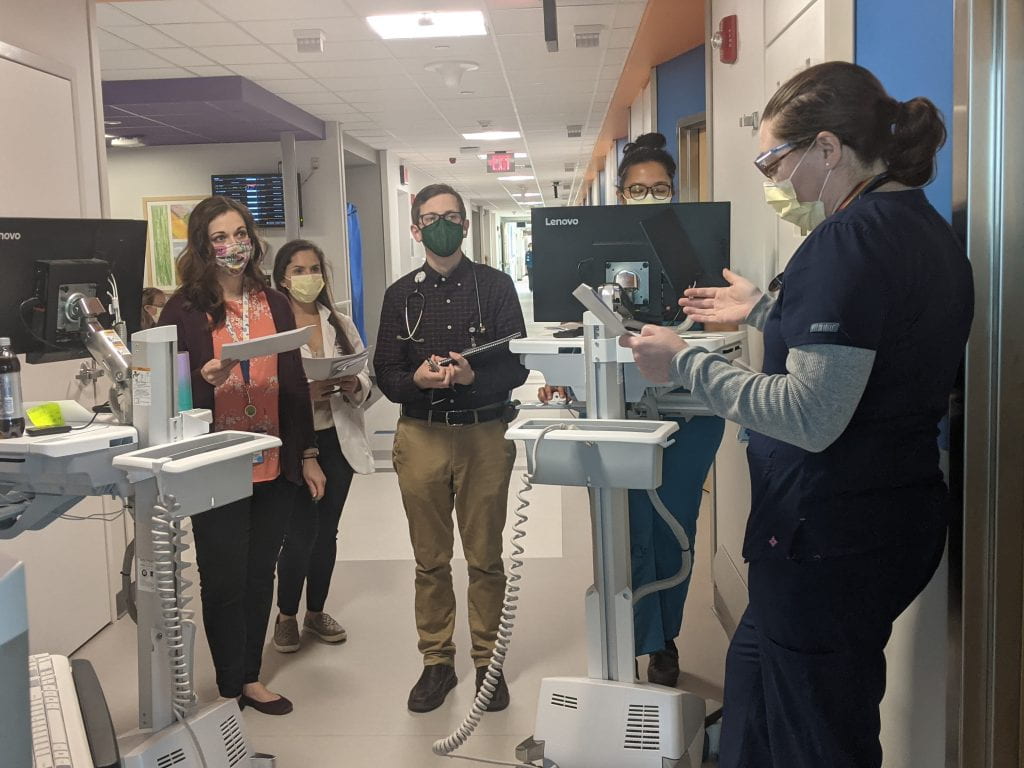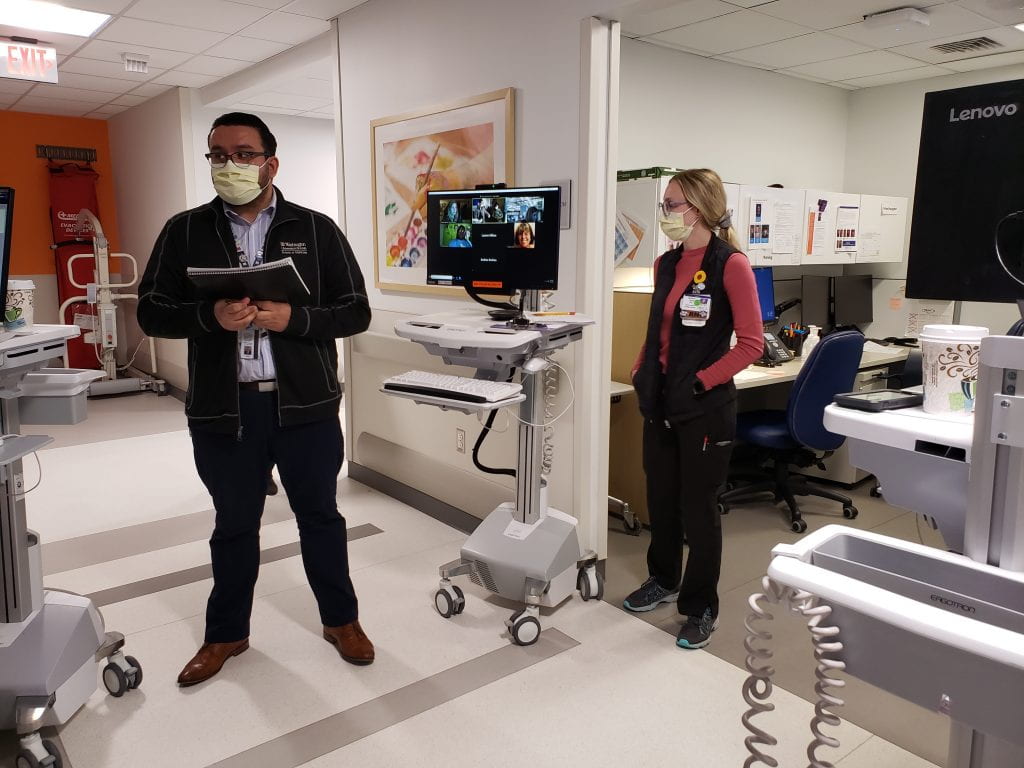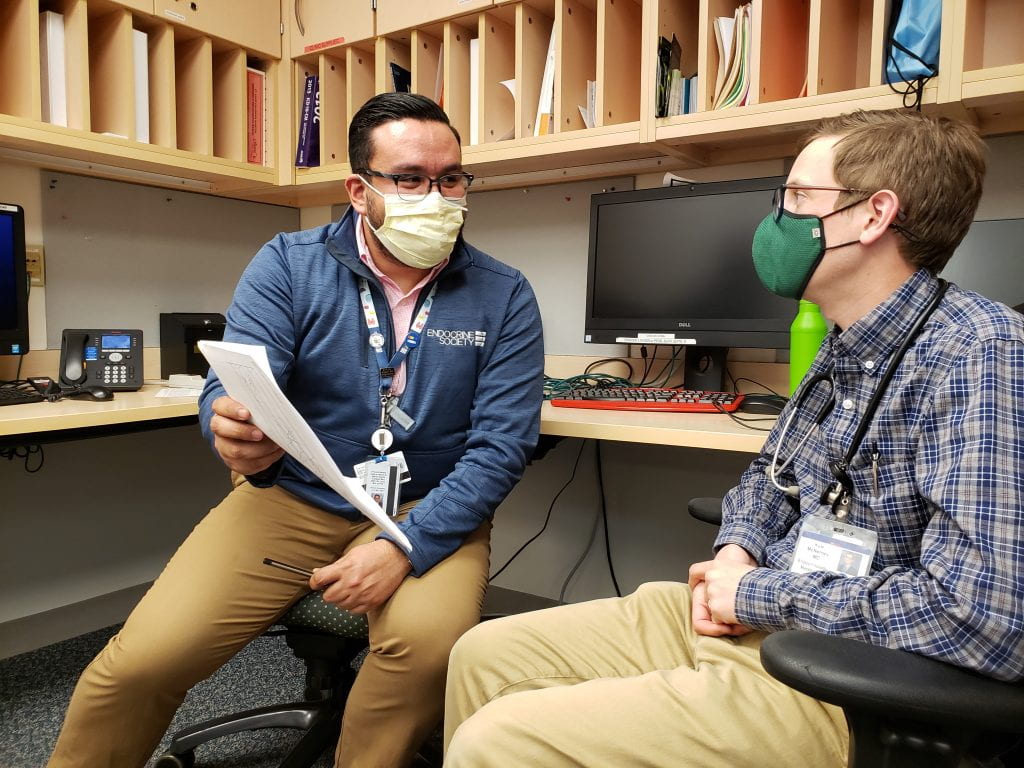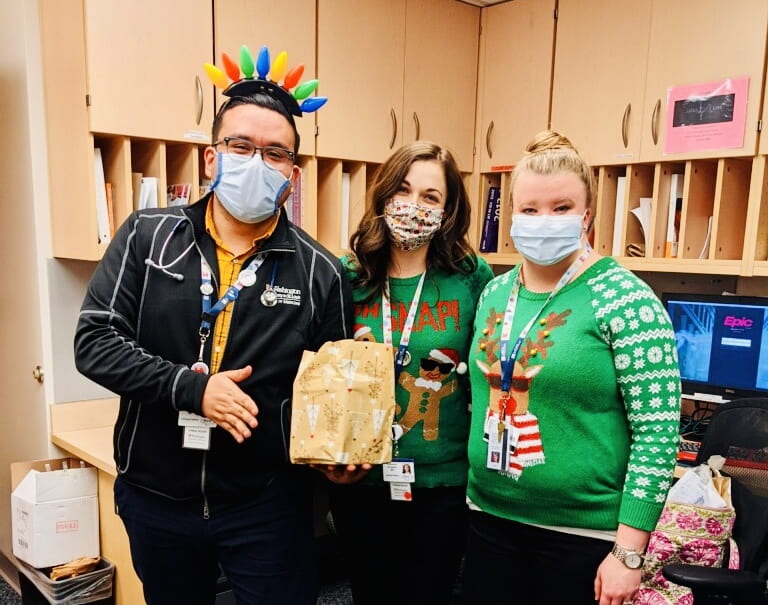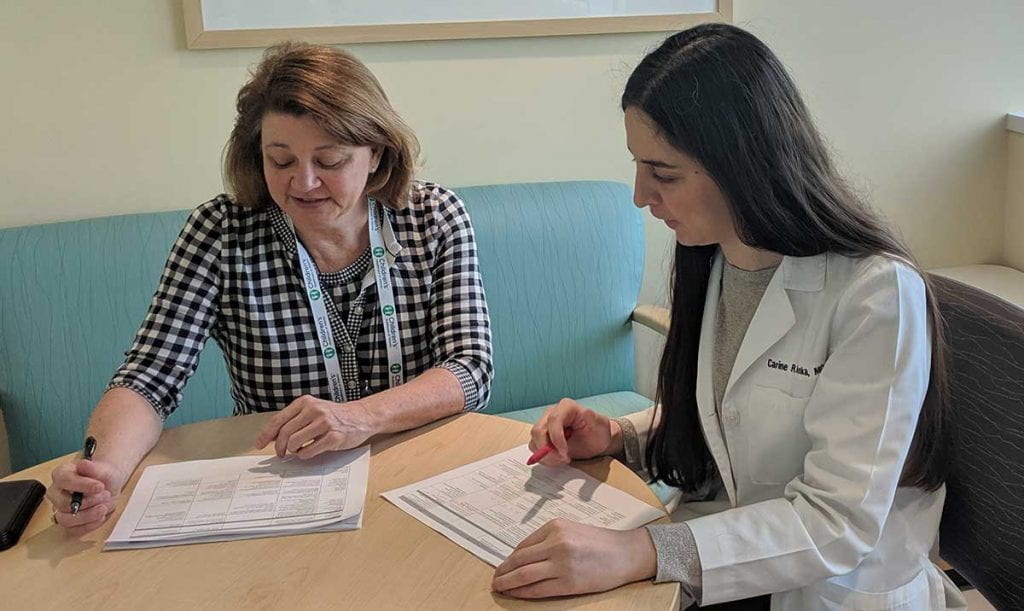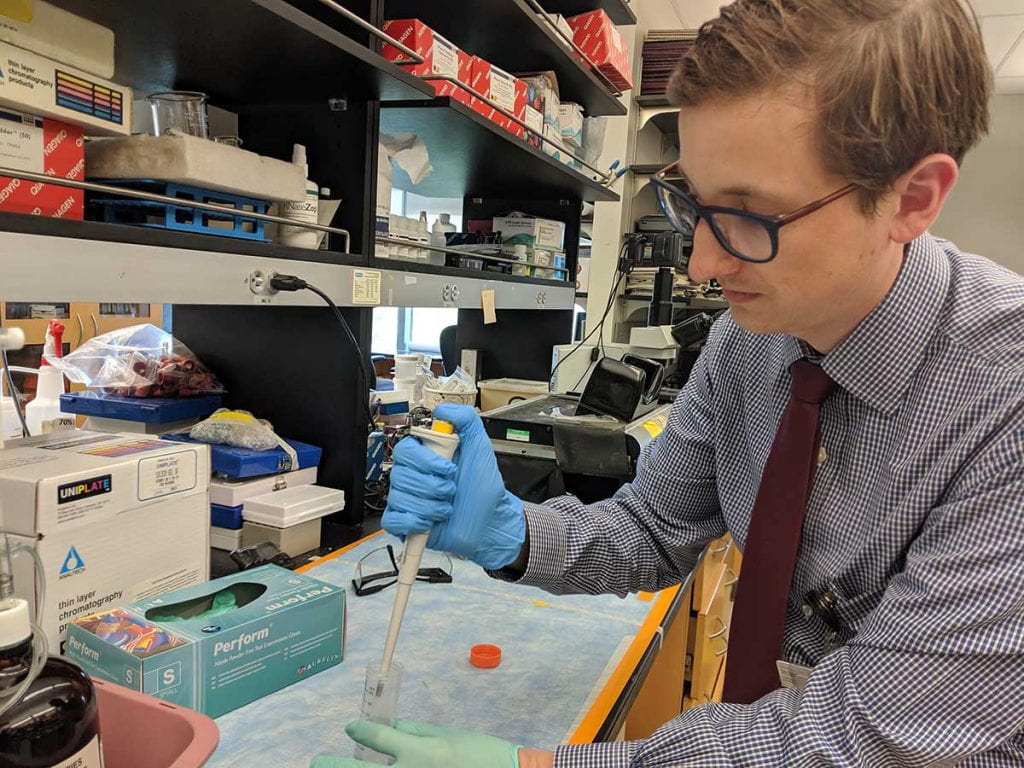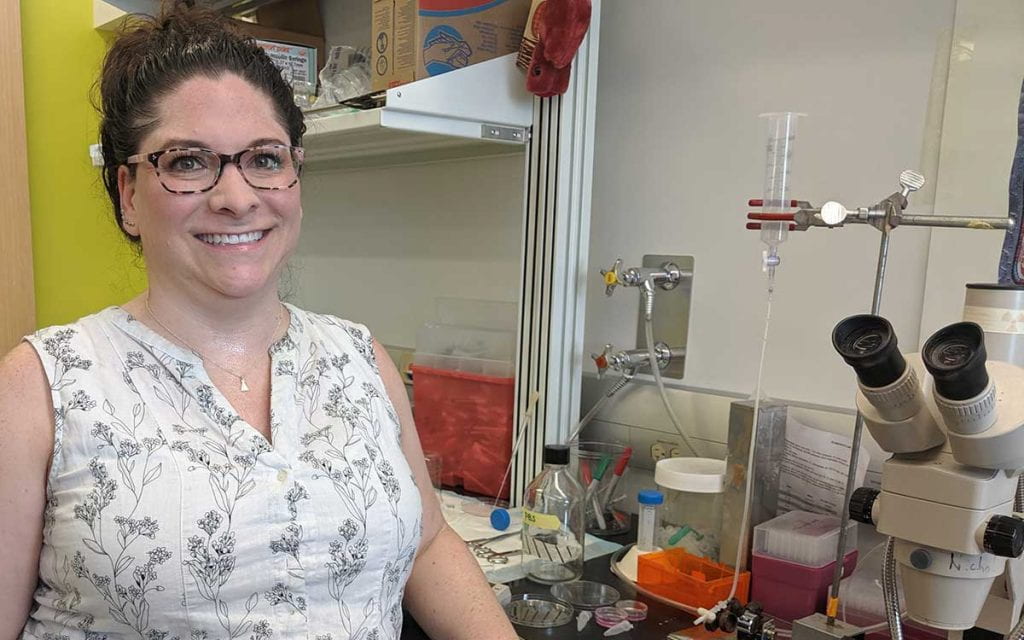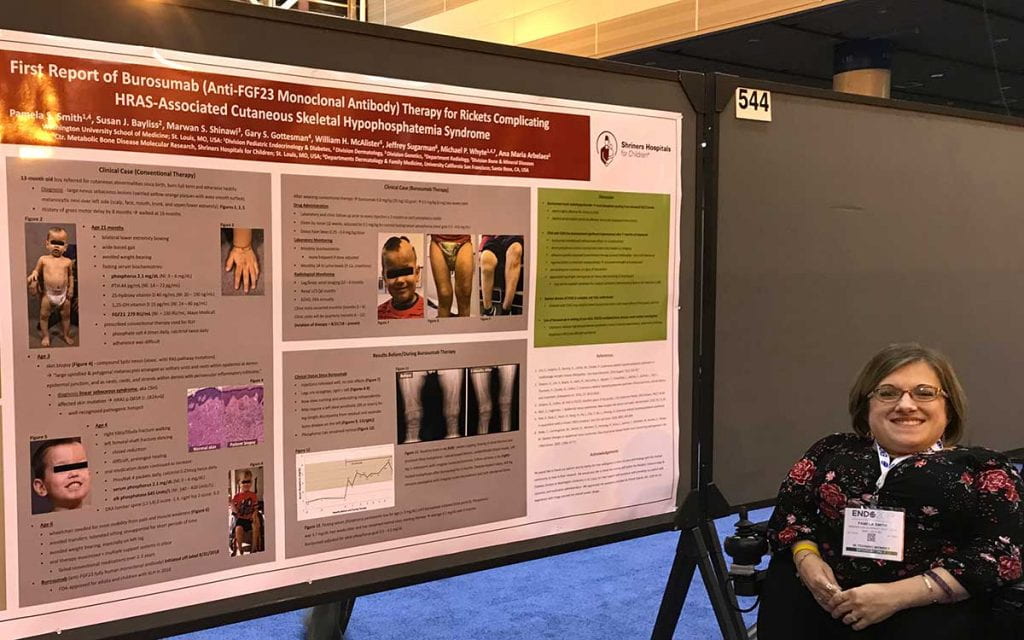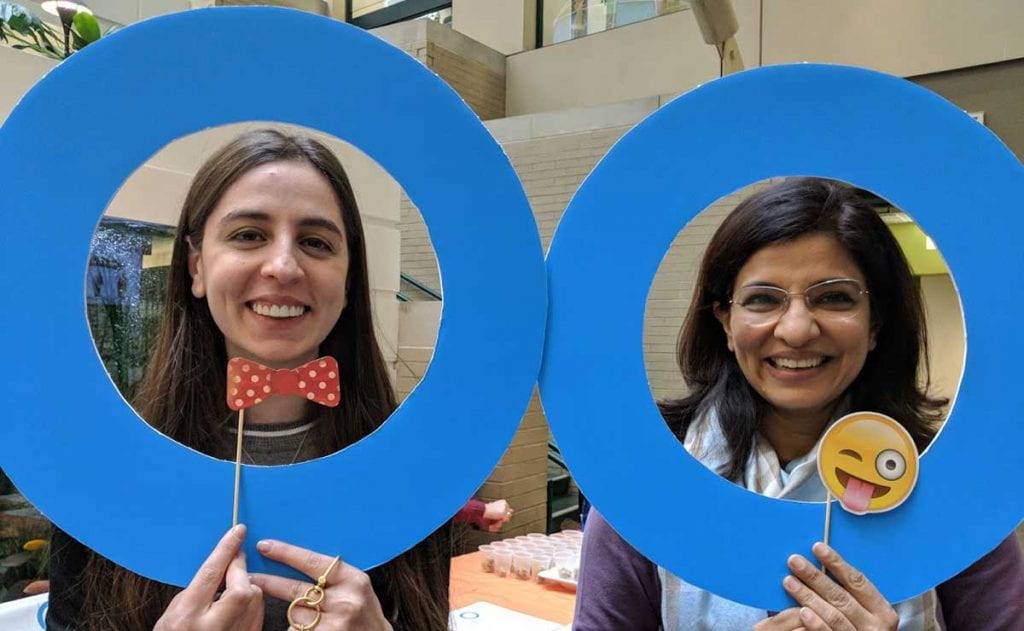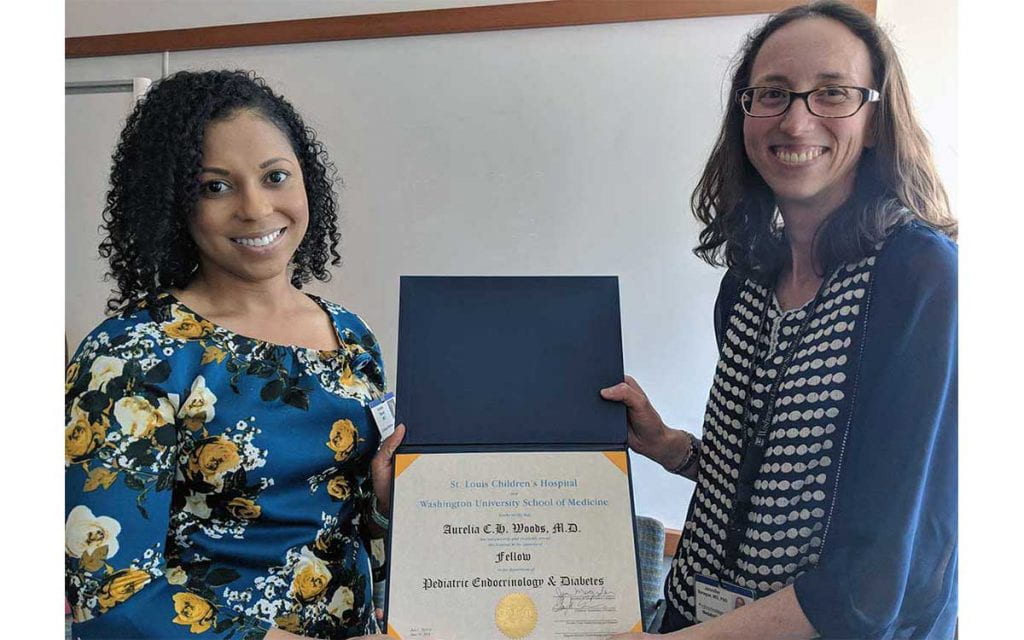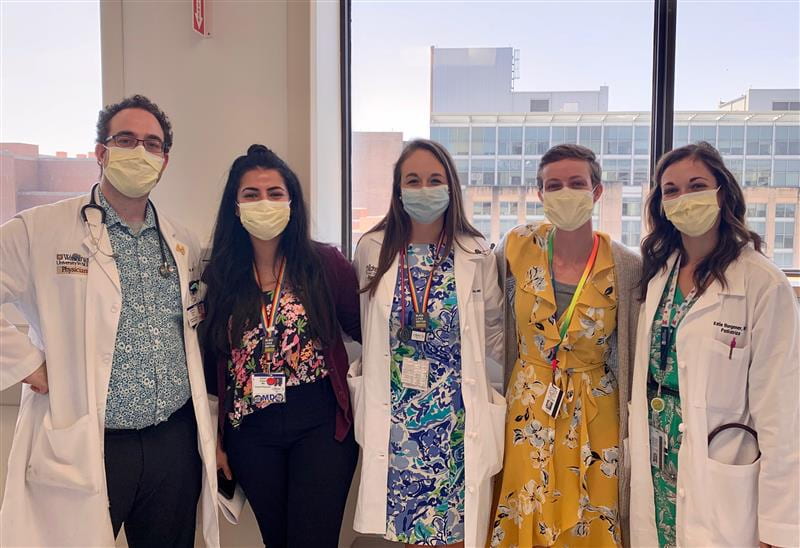The selection of a fellowship training program will be one of the most important decisions you make in your career as a physician. The Department of Pediatrics at Washington University School of Medicine has a long-standing commitment to excellence in educating the next generation of pediatric endocrinologists. Whether you aim to be a master clinician, an attending in an academic institution, or a basic science or clinical researcher, our faculty will help you to establish yourself as a leader in pediatric endocrinology.
The Washington University/St. Louis Children’s Hospital Pediatric Endocrinology Fellowship Program is a three-year comprehensive ACGME-accredited program for pediatricians interested in pursuing an academic medical career in pediatric endocrinology. Our mission is to provide excellence in patient care, teaching and research.
The first year of the program is dedicated primarily to clinical training in pediatric endocrinology while fellows begin planning their research project. The primary pediatric endocrinology clinical site is on campus at St. Louis Children’s Hospital. Each fellow is provided a clinical mentor from faculty. In the second and third years of training, fellows spend the majority of time developing their research projects and have more limited clinical time.
Outpatient clinics
Beginning in the first year, each fellow establishes a Continuity Clinic with patients assigned from inpatient admissions and referrals from the community. First year fellows have two continuity clinics per week. Senior fellows have 1 continuity clinic per week. Fellows collaborate with diabetes educators, dietitians, social workers, nurse practitioners and psychologists to provide optimal care to their patients.
Fellows attend one to two monthly specialty clinics: Differences in Sex Development, Turner Syndrome, Transgender Care, Neuro Oncology and Metabolic Bone Disease (at nearby Shriners Hospital St. Louis Center for Metabolic Bone Disease and Molecular Research). Additionally, fellows have the option to complete a rotation in Genetics and may choose to rotate through the following sub-specialty clinics: Cystic Fibrosis, Healthy Start (Obesity) and Type 1 Diabetes Transition Clinic.
Inpatient diabetes and endocrine service
The Inpatient Diabetes and Endocrine Service sees a high volume of diabetic patients, and a vast variety of endocrine disorders. Fellows work closely with the attending physician on service and lead daily rounds. During service, fellows’ academic time is protected so that they can attend didactic seminars without interruption. Night call is taken from home.
Below is a table of clinical requirements during fellowship.
Currently call is taken from home.
| Fellowship Year | Inpatient Service * |
| 1 | ~16 weeks |
| 2 | ~ten weeks |
| 3 | ~six weeks** |
* Fellows complete a minimum of 32 weeks of inpatient service over the three-year program. Fellows pursuing basic science careers or other specialized training during fellowship may shift more inpatient weeks to the 1st year to give more protected time for research during the 2nd and 3rd years.
** Often called the “pre-tending” time, 3rd year fellows are encouraged to act as the supervising physician for the endocrine team during their inpatient service time while still under the supervision of an attending physician.
Fellows are provided with a comprehensive core didactic lecture series in which the full spectrum of endocrine physiology and pathophysiology is presented over a two-year cycle. Weekly lectures are given by faculty within both the pediatric and adult endocrine divisions. Recognized experts invited to speak from outside Washington University further add to the rich educational experience. Participation at these conferences is a required component of the training program. Fellows’ attendance time is protected from clinical duties during these lectures. Throughout the year, fellows are expected to present at a variety of conferences, from journal clubs to case discussions.
Fellows complete a QI project each year, and present their work within the division and frequently to other divisions within the hospital. Fellows lead daily rounds during inpatient service and have the opportunity to teach residents informally in this setting and at the bedside. They also prepare weekly American Academy of Pediatrics PREP slides and lead the discussion amongst faculty and fellows. In addition, fellows present at our yearly community Diabetes Caregiver course and teach at the regional Diabetes Camp (Camp EDI) and in our Diabetes Support Group for children and their families.
Fellows present their research semi-annually at the Washington UniversityEndocrine Research day and during their third year at the Washington University Pediatric Research Retreat. Fellows are encouraged to attend and present at one national meeting each year. Fellows have presented at PES (Pediatric Endocrine Society), ASBMR (American Society for Bone and Mineral Research), the ADA (American Diabetes Association) and the Endocrine Society.
Specialty pathway options
The Washington University Pediatric Endocrinology Fellowship program is dedicated to providing excellent training in pediatric endocrinology to meet the long term career goals of each fellow. Fellows can select specialized training pathway during the first six months of their fellowship. Specialized pathways are:
The second and third year fellows have protected time to focus on research training of clinical (patient-oriented) and/or basic science research to ultimately produce a scholarly work to submit in a peer-reviewed journal. The selection of a research project is guided by each fellow’s ultimate career goals, and is individualized to develop the skills needed to succeed in their chosen path. Mentor selection is facilitated by the Program Director with the goal to have an outlined proposal for their scholarly work by the end of their first year. Fellows take advantage of the highly collaborative environment at the School of Medicine to work with faculty from the entire university depending on their area of interest to compose a scholarly oversight committee, which meets twice annually. This includes faculty from:
- Division of Pediatric Endocrinology and Diabetes
- Division of Endocrinology, Diabetes and Metabolism in the Department of Internal Medicine
- Other basic science or clinical departments at Washington University
During research training, fellows are also encouraged to pursue didactic training in research methods through various programs at the medical school. Fellows may qualify for grant/scholarship funding through these degree programs.
Second-year fellows are eligible to apply for the Julio Santiago Memorial Fellowship award, an institutional $7000 grant for diabetes research which is given to a pediatric endocrinology fellow. Recent fellows have successfully applied for T32 training grants, travel scholarships to national meetings, and the Pediatric Endocrinology Society Research Fellowship Award. Washington University offers an extensive list of training grant opportunities, including several that are directed at pediatric research.
The program and the department support the development of its fellows’ research and grant-writing skills through a comprehensive, progressive three-year curriculum for all fellows in the Department of Pediatrics. During the academic year, this monthly fellows’ conference covers all ACGME-required training in general topics related to the conduct of research including biostatistics, study design and study implementation.
Fellows planning a career as a clinician educator complete all the requirements of the standard training pathway but are encouraged to participate in additional clinical specialty training. Fellows may attend extra specialty clinics or other clinics specific to their clinical interest which may be coordinated with other sub-specialties if outside the usual scope of endocrinology (example: pediatric psychology for a fellow interested in high risk diabetes care).
Fellows may choose specific didactic training based on career interests.
Quality Improvement – Basic Certificate in Quality and Safety through the Institute for Healthcare Improvement. Complete training for core concepts in patient safety and quality improvement.
Medical Education – Washington University Teaching Physician Pathway. This is a one year certificate program to provide a strong foundation in curriculum design, education theory, pedagogy, and presentation skills.
The Bone Metabolism Pathway is for pediatric endocrinology fellows planning to specialize in the diagnosis and management of metabolic disorders affecting the bone and to engage in bone research. This two-year pathway is designed to allow the fellow to become an expert in the diagnosis and management of metabolic disorders affecting the skeleton, and to engage in skeletal research while maintaining and expanding knowledge of general pediatric endocrinology. This program is managed by the Division of Pediatric Endocrinology in collaboration with the Division of Bone and Mineral Diseases under the Skeletal Disorders Training Program (SDTP).
Fellows may indicate interest in the pathway when applying for fellowship or during the first six months of training to begin during the second year of training.
